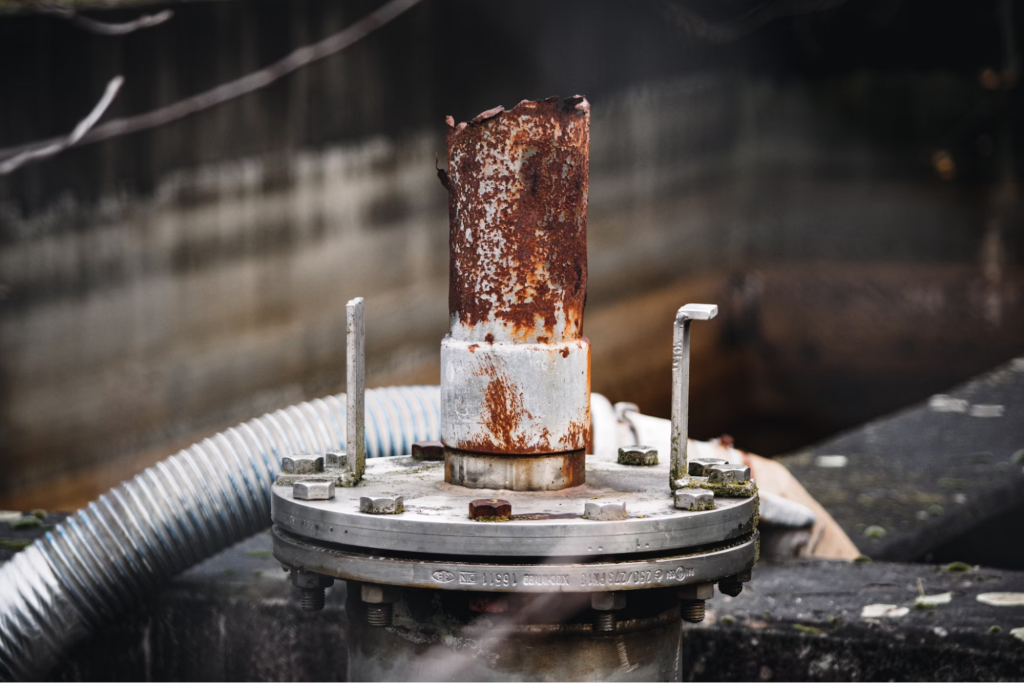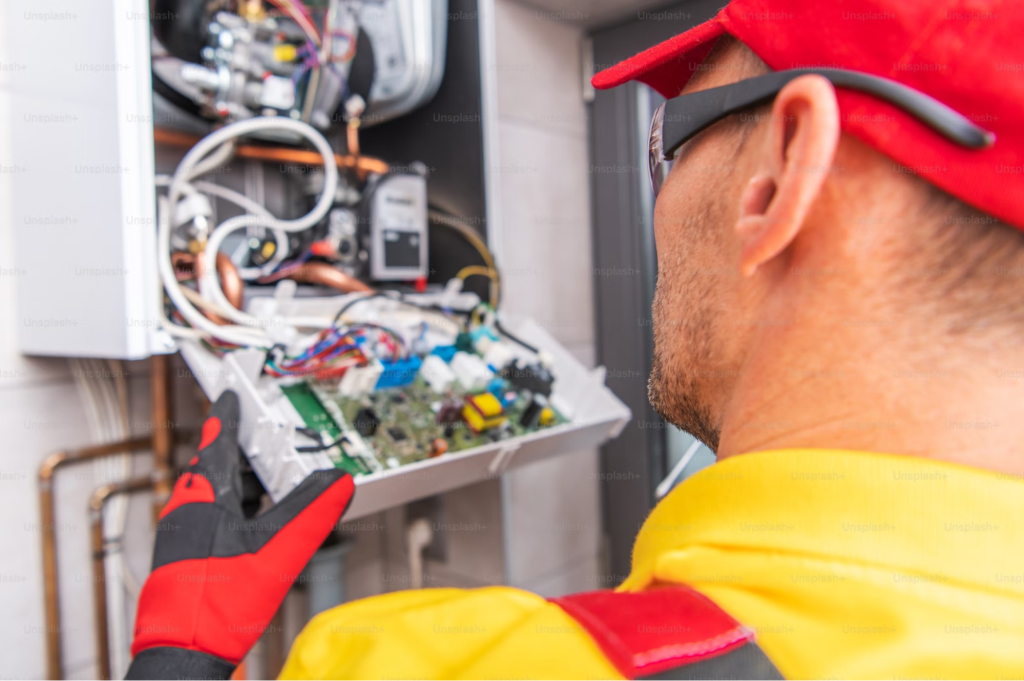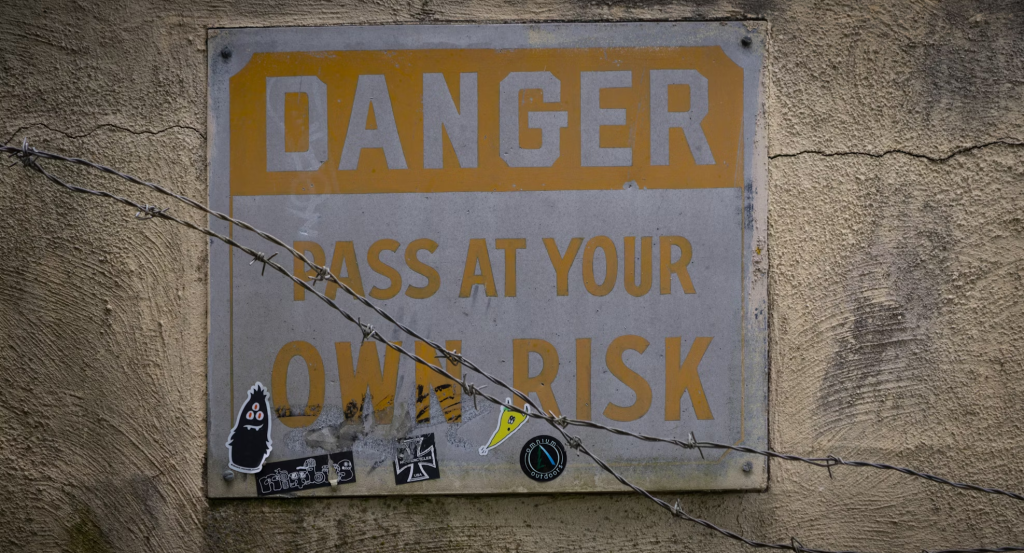

Gas leaks pose one of the most serious threats you can encounter. Without proper gas leak repair, there’s a real risk of fire or explosions.
Fixing a leaking gas line yourself might seem possible. But in most cases, it’s best to leave it to the professionals. So, how do you know who fixes gas leaks?
This guide covers how to do gas leak detection, the safety steps to take, and when to call professionals if the situation gets serious. Let’s dive in!
Warning: While these gas line repair methods seem common, professional treatment is strongly advised for all gas line work.
The primary recommendation is to call an expert for gas line repairs. But in some cases, you might be allowed to do some parts of the work yourself. But this scenario is only applicable for new fittings with clean threads and little rust.
So, if you choose to fix a loose connection yourself, use two adjustable wrenches. One to hold the pipe steady, the other to tighten the fitting.
Remember, turn off the gas first. You can use a gas leak detection system to check the area before starting. And don’t over-tighten, or you might damage the threads.
Once you tighten the connection, spray it with soapy water. If you see bubbles, there’s still a leak. Leaks often happen at appliance connections, meter points, or threaded unions.
Cleaning surface rust off gas pipes helps prevent bigger corrosion problems. To do it right, turn off the gas and make sure there’s good airflow.
You can use a wire brush or steel wool to scrub off loose rust and flaky spots. Do it slowly along the whole pipe. For tough rust, grab a rust remover, and rinse well with water afterward.
Once it’s clean, check the pipe carefully. You can do this once a year if you live in a humid environment.

As you can see, this is more of a maintenance than a gas leak repair. But, if you notice deep pits, thin spots, or holes, stop and call a professional right away.
Repair clamps or metal bands can temporarily stop gas leaks from small holes or cracks. But this is only for emergencies until a professional can do a permanent repair.
If you’re able to do emergency repairs, turn off the gas first. Then, clean off any rust, dirt, or loose objects around the damaged spot.
The metal clamp has a rubber gasket inside that seals around the pipe. Just make sure the gasket covers the whole hole with some extra on both sides over the good pipe. You can then tighten the bolts gradually in a crisscross pattern. Consult an expert gas plumber in your area for a thorough gas pipe leak repair.
Sealing gas line threads requires yellow PTFE tape made specifically for gas lines. Regular white plumber’s tape won’t work and can be dangerous.
Keep in mind, this job needs thread skills and knowledge of gas-rated materials. In other words, you should call a professional for this.
A professional wraps the tape clockwise around the male threads, looking at the end. They usually do 3 to 4 wraps, pulling the tape tight so it fits into the grooves.
The key is to wrap one thread back from the end. This keeps tape out of the gas flow. Also, don’t let the tape cover the first thread where the fitting screws in. That ensures a proper seal.
Fixing cracks in gas pipes with special paste needs a careful assessment of how bad the crack is and what materials to use.
You can clean the crack with a degreaser and scrub off dirt or oil so the paste sticks. Then, see if the crack goes all the way through or just partway. If it’s all the way through, let a professional handle it.
So, what’s next? Just work the paste into the crack with the right tools. Make sure it fills completely and covers the right area. It should match your gas type, system pressure, and pipe material.
Keep in mind, this method works best on small, stable cracks from minor stress, not rust or damage.
Fixing broken gas line parts requires a licensed technician and adherence to local regulations, as it involves cutting into gas lines.
The process begins with shutting off the gas supply and releasing pressure for safety. The damaged area is inspected to identify parts such as rusted elbows or broken tee joints.

The broken components are removed, leaving enough pipe length for proper connection. New parts are installed in accordance with current building codes.
Don’t try to fix a gas shut-off valve yourself. These valves control the gas for your whole system or appliances. They need to work perfectly, especially in an emergency.
Also, different valves require different repairs. Sometimes, fixing them means replacing seals or packing. Other times, you may need to replace the entire valve.
As usual, the gas line repair starts with turning off the gas for safety. The old valve is removed and disassembled, with all parts checked for proper function.
When installing a new valve, making sure the pressure, connections, and leaks are all in good condition is vital.
Before we move on to the steps for gas leak repair, let’s learn about all the types of gas line issues:
Your gas line has parts like joints, valves, and regulators. These parts can get stressed from changes in gas pressure and cold or hot weather. Over time, the seals between these parts can loosen.
At first, these leaks might seem small, but they can be very dangerous. They can cause a buildup of flammable gas in places like basements or utility rooms where the air doesn’t move much.
Corrosion can hurt your gas system like loose connections do. It makes metal pipes weak and can cause leaks or breaks.
Many homeowners don’t think about how their surroundings can make corrosion worse. High humidity, salt air by the coast, and leaks can all speed up corrosion.
Poor installation can cause problems with gas lines. A system that should be safe can become dangerous.

For example, using tiny pipes can create too much pressure and stress the joints. If pipes aren’t angled right, water can sit in low spots, leading to rust and clogs. And if they’re not supported properly, they might bend and leak.
Broken gas equipment can make home appliances dangerous. Let’s say, your water heater takes forever to heat up, or your furnace turns on and off at weird times.
You might think these are just normal wear and tear. But if you ignore them, they can lead to serious accidents. Even worse, it can cause a chain of problems.
Accidental digging can seriously damage home gas pipes. What looks like a simple weekend project, like planting a tree or installing a mailbox, can actually break underground gas lines.
Keep in mind that these gas pipes are often only 18 to 24 inches below the ground. So, even small digging jobs can hit them. That can cause big problems like fires, explosions, or even deaths.
Earthquakes or floods can suddenly break underground gas pipes. This makes many hidden pipes dangerous.
Unlike slow leaks, sudden events can cause hidden damage. For example, mining activities or earth rotation can pose risks to these lines.
Gas leak repairs are serious safety tasks that require careful attention. Most gas work needs licensed professionals with proper knowledge, tools and permits.
DIY work should only include simple tasks like checking for leaks with soapy water or turning off the gas. But even small fixes like tightening gas line connections require a very careful approach.
We’ve covered many gas problems and repair options. However, most methods are for professionals. And if you need immediate professional gas repair, don’t hesitate to contact Melbourne Gas Plumber.


Fill the form below and we’ll get back ASAP!

MGP! Thank you for help, honest pricing and high quality work. Thank you to Joe for pricing and the boys involved for replacing my hot water tank and fixing my gas leak for a reasonable price. 5 star response, 5 star service and 5 star price.
Joe was great. Very professional and quick. Gas hot water heater needed replacing, he was honest and upfront about what our options were. System was sourced and replaced within a couple of hours.
Fantastic service very responsive Joe is highly recommended and works very clean and neat..... good job well done....very happy... will use again and again

At Melbourne Gas Plumber, we're here to handle all your gas plumbing needs throughout Melbourne. With over 40 years of experience, we bring extensive local knowledge and expertise to every job.
QUICK LINKS
OPENING HOURS
Open 24/7
